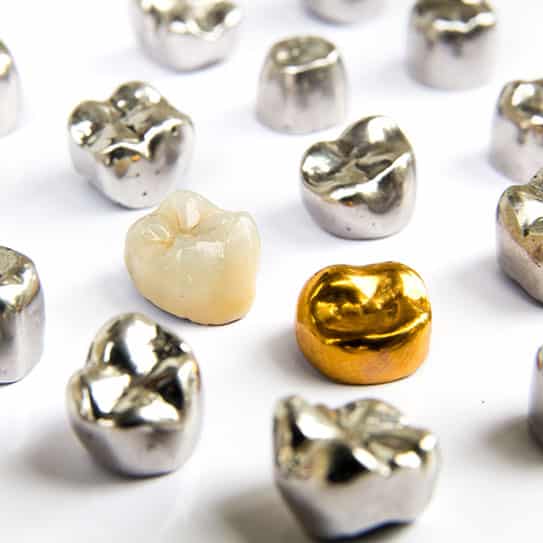
Everything You Need to Know Before Getting a Dental Crown
When it comes to restoring damaged teeth, dental crowns are one of the most effective and reliable solutions available. Whether you’re dealing with a cracked tooth, a large cavity, or simply want to improve the appearance of a worn or misshapen tooth, dental crowns can provide both functional and cosmetic benefits. If you’ve been wondering whether dental crowns are right for you, this guide will cover everything you need to know.
What Are Dental Crowns?
A dental crown is essentially a cap that fits over an existing tooth to restore its shape, size, strength, and appearance. Crowns are custom-made to match the color and contour of your natural teeth, creating a seamless look. They are typically recommended when a tooth is too damaged for a filling to be effective but is still healthy enough to preserve with additional protection. Your dentist may suggest dental crowns for a variety of reasons, including:
- Protecting a weakened tooth from breaking
- Restoring a broken or severely worn down tooth
- Covering and supporting a tooth with a large filling
- Holding a dental bridge in place
- Covering misshapen or severely discolored teeth
- Covering a dental implant
Types of Dental Crowns
There are several types of materials used to make dental crowns, each with its own advantages:
- Porcelain or Ceramic Crowns: These crowns provide the most natural color match and are a popular choice for front teeth. They are stain-resistant and blend seamlessly with surrounding teeth.
- Metal Crowns: Made from gold, palladium, or other metal alloys, these crowns are incredibly durable and can withstand strong biting and chewing forces. However, their metallic color makes them less ideal for visible teeth.
- Porcelain-Fused-to-Metal (PFM) Crowns: These combine the strength of metal with the natural appearance of porcelain. They are durable and aesthetically pleasing but may show a thin metal line at the gumline over time.
- Resin Crowns: These are more affordable but tend to wear down more quickly and are more prone to fractures compared to other types.
When you visit your dentist, they will discuss the best material for your specific needs based on the location of the tooth, your bite, and your personal preferences.
The Dental Crown Procedure
Getting dental crowns typically requires two appointments with your dentist. Here’s what you can expect:
- Examination and Preparation: Your dentist will examine the tooth and take X-rays to assess its condition. If the tooth has extensive decay or a risk of infection, a root canal treatment may be necessary first.
- Shaping the Tooth: The tooth is filed down to make room for the crown. If a large area of the tooth is missing, your dentist may use filling material to build it up before placing the crown.
- Impression: An impression of the tooth is taken to create a model for the crown. You may receive a temporary crown to protect the prepared tooth while your permanent crown is being made.
- Placement: On a second visit, once your permanent crown is ready, your dentist will remove the temporary crown, check the fit and color, and permanently cement the new crown into place.
Caring for Dental Crowns
Although dental crowns are durable, they still require proper care to last. With good oral hygiene practices, a dental crown can last anywhere from 5 to 15 years, and often even longer. Here are some tips to maintain your crown:
- Brush and Floss Daily: Maintain a consistent oral hygiene routine to prevent decay around the crowned tooth.
- Avoid Hard Foods: Chewing hard objects like ice or hard candies can damage the crown.
- Visit Your Dentist Regularly: Regular checkups allow your dentist to monitor the health of your crown and the surrounding teeth.
- Wear a Mouthguard: If you grind your teeth at night, your dentist may recommend a night guard to protect your crowns.
Common Questions About Dental Crowns
- Are dental crowns painful to get? Most patients experience little to no discomfort during the crown procedure. Your dentist will use local anesthesia to numb the area during the preparation process.
- Can a dental crown fall out? While uncommon, crowns can become loose or fall out due to decay underneath the crown or issues with the cement. If this happens, contact your dentist immediately to have it repaired or replaced.
- Are crowns only for cosmetic purposes? While dental crowns certainly improve the appearance of a tooth, they primarily serve a restorative purpose by strengthening and protecting damaged teeth.
Ready to Strengthen Your Smile?
Dental crowns are a versatile and effective solution for many dental issues, offering both aesthetic and functional benefits. Whether you need to restore a damaged tooth, protect a weakened one, or enhance the appearance of your smile, dental crowns can play a key role in your dental health plan. If you think you might benefit from a crown or have questions about your options, schedule a consultation with your dentist. With expert care and the right approach from our team at Santa Rita Dental in Bakersfield, your smile can stay strong, beautiful, and healthy for years to come.
